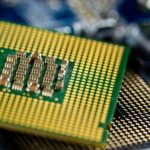At a recent event in Tochigi, Japan, Honda announced its plan to introduce seven fully electric vehicles (EVs) built on the newly developed Honda Zero platform. This initiative reflects Honda’s commitment to expanding its electric lineup and adapting to the evolving automotive market. The company aims to enhance its competitiveness in the rapidly growing EV sector by leveraging innovative technologies and design principles.
Historically, Honda and Toyota have taken a slower approach to EV deployment compared to their American and Chinese counterparts. While the latter have aggressively pursued new EV platforms to meet rising consumer demand, Honda opted for a more measured strategy. This approach allowed Honda to carefully develop its technologies and ensure alignment with market needs before scaling up production.
How Does the Honda Zero Platform Differ from Previous Models?
The Honda Zero platform is engineered to prioritize lightweight construction and spacious interiors, addressing common issues of weight and bulkiness in existing EVs.
“We are creating a new value,”
stated Toshihiro Mibe, Honda’s president and CEO, highlighting the company’s focus on rebuilding from the ground up to deliver superior electric vehicles.
What Impact Did the Partnership with GM Have on Honda’s EV Strategy?
The collaboration with General Motors (GM) aimed to develop affordable EVs but was discontinued earlier this year. As a result, Honda has redirected its efforts towards higher-end models, acknowledging the significant investment required to establish a new EV platform. This shift allows Honda to concentrate on introducing advanced technologies and maintaining high-quality standards in its initial EV offerings.
What Are Honda’s Long-Term Goals for Electric Vehicles?
Honda plans to debut the first vehicle on the Zero platform, a halo model similar to the Saloon sedan concept, at CES 2025. This model is expected to achieve an EPA range of 300 miles, showcasing Honda’s advancements in electric vehicle technology. The company remains dedicated to expanding its fully electric lineup by 2040, aiming to solidify its presence in the global EV market.
By focusing on the Zero platform, Honda seeks to establish a strong foundation for its electric future. The emphasis on high-end models initially will enable the company to incorporate the latest technologies and set a benchmark for subsequent, more affordable vehicles. This strategic approach ensures that Honda can meet diverse consumer needs while maintaining technological excellence and sustainability.










